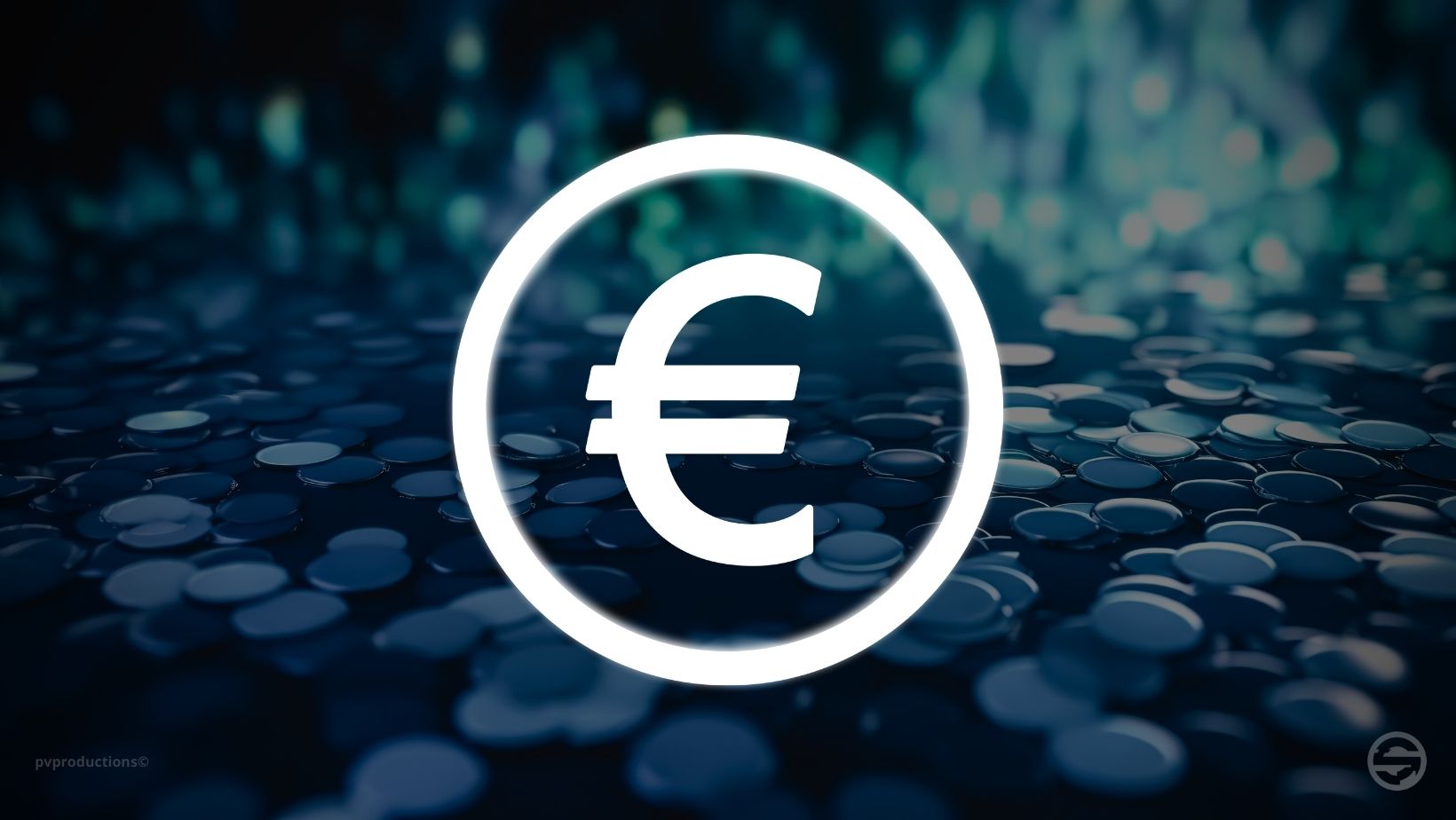
Table of contents
What is the digital euro?
The digital euro aims to create a digital version of the euro, equivalent to cash. This digital currency would be used for all digital payments within the euro zone, enabling instant payments in central bank money (CBDC). Designed as a complement to cash rather than an alternative, the digital euro should facilitate everyday transactions in an increasingly digital economy. With the digital euro, the ECB aims to emphasize data protection, payment system resilience and innovation in the European payments industry. Basic use of the digital euro would be free of charge for private customers, accessible via their payment service provider or a dedicated Eurosystem application.
Digital euro objectives
1. Facilitating financial transactions
By simplifying financial transactions, the digital euro will make monetary exchanges more efficient and accessible, for both individuals and businesses. This will contribute to a more fluid and dynamic European economy.
2. Modernizing the payment system
By offering a digital alternative to cash, the digital euro will modernize the payment system. It will bring the European Union into line with the standards of an increasingly digital economy.
3. Improving accessibility
By being widely available, accessible and easy to use, the digital euro guarantees that all citizens and businesses in the euro zone will be able to participate in electronic transactions without difficulty.
How the digital euro works
1. Storage in an electronic wallet
The digital euro will be held in an electronic wallet placed with banks or qualified intermediaries.
2. Electronic payments
Users will be able to make the usual electronic payments in-store, online or between individuals. They will be able to use their phone, online and offline cards to make these transactions.
Digital Euro vs. Cryptocurrency
According to the ECB, the main difference between the digital euro and cryptocurrencies lies in their guarantee and management. Unlike cryptocurrencies, a digital euro would be guaranteed by the European Central Bank, one of whose missions is to ensure the stability of a currency and preserve its value. On the other hand, again according to the ECB, cryptocurrencies are neither guaranteed nor managed by a central institution, which means there is no guarantee that their value will remain stable. What's more, with the digital euro, users can rest assured that they will be able to exchange their digital currency for cash when necessary, offering additional security compared to cryptocurrencies, where no such guarantee exists.
Critical reflections on the digital euro
1. Threat to traditional institutions and financial stability
The introduction of CBDCs poses a major challenge for traditional banks. By enabling individuals to deal directly with the central bank, CBDCs could dilute the deposits of private institutions and reduce their control over the money supply. This could lead to a loss of customers, especially for smaller banks, thus reinforcing financial instability, particularly in times of crisis.
2. Monitoring and data collection
Another major concern is the massive collection of data. While CBDCs could promote financial inclusion, they could also generate an unprecedented volume of data. This raises legitimate concerns about individual privacy and civil liberties. Some researchers therefore warn against the increased surveillance power of central banks.
3. The need for transparent public debate
Faced with these challenges, it seems imperative to involve citizens and businesses in a transparent public debate. The preparatory phase of the digital euro raises profound questions about trust, both in this new form of currency and in cryptocurrencies. An open and inclusive dialogue is essential to fully understand the implications of this major financial transition that will impact everyone.
Conclusion: a delicate balance between centralized power and individual freedom
Ultimately, the digital euro offers advantages, but also considerable challenges. The coexistence of the central currency and cryptocurrencies offers citizens a choice, enabling a delicate balance between centralized power and individual freedom. Careful management of this transition is essential to preserve privacy, civil liberties and citizens' trust in the European financial system.
Sources:
- https://www.ecb.europa.eu/press/pr/date/2023/html/ecb.pr231018~111a014ae7.fr.html, consulted on 28-10-23
- https://www.ecb.europa.eu/paym/digital_euro/html/index.fr.html, consulted on 28-10-23
- https://www.lemonde.fr/idees/article/2022/09/20/il-y-a-une-absence-deconcertante-de-debat-public-sur-les-questions-de-confidentialite-qui-entourent-les-monnaies-centrales-numeriques_6142365_3232.html, consulted on 28-10-23
- https://fr.cointelegraph.com/news/existential-threat-why-some-banks-are-anxious-about-cbdcs, consulted on 28-10-23
Disclaimer: this is not financial advice. Satolix.io website aims to inform readers about Blockchain, Cryptocurrencies and Web3. Any type of investment involves risk. Please do your own due diligence and research the articles and projects presented on the site. Be responsible and do not invest more than your goals or financial means allow. In this regard, read our page: Warning about virtual currencies.
Some articles on the site contain affiliate links, and using them to register from the site allows the site to develop through the collection of commissions. By doing so, you also make yourself eligible for a welcome bonus such as a voucher or reduced fees, for example.



 Crypto, Crypto regulation
Crypto, Crypto regulation 2023-10-30
2023-10-30
